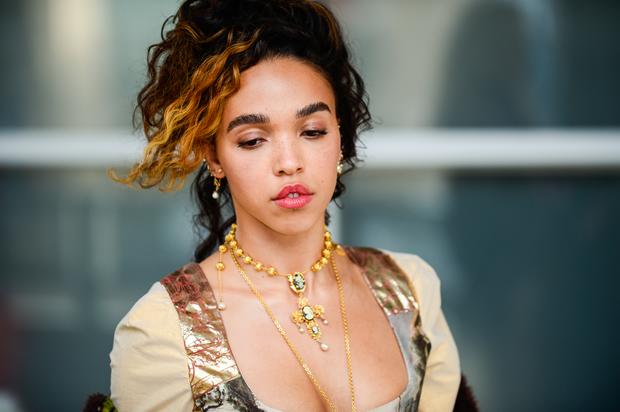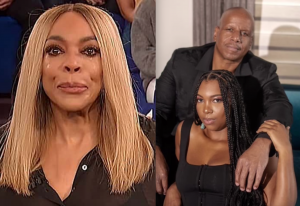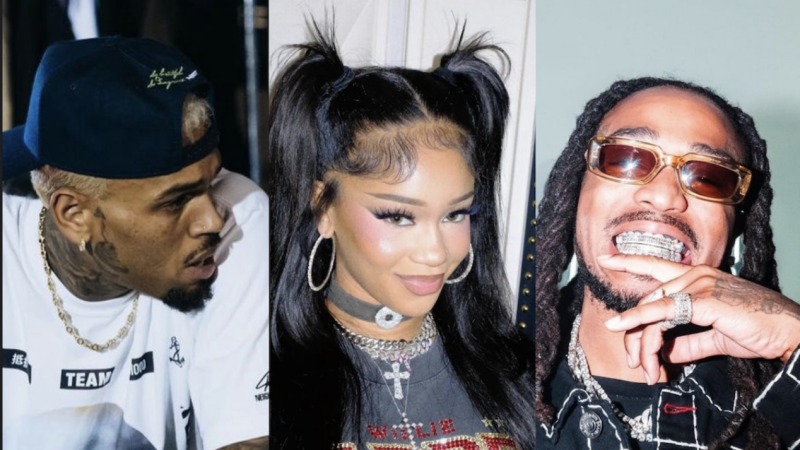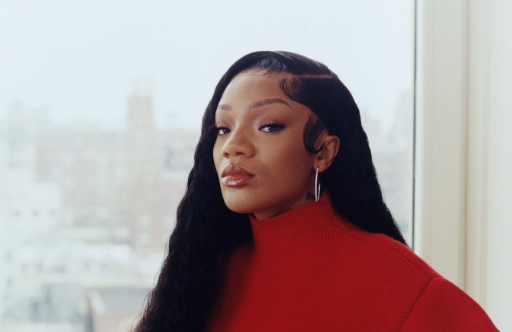How FKA Twigs’ Innovative Artistry Has Risen To Mythical Status

Born and raised in the sleepy seaside hollow of Tewkesbury, Gloucestershire, it’s hard to believe that this unassuming town could be the point of origin for one of modern music’s most captivating visionaries. Best known as the “Cotswolds’ medieval market town,” little did its inhabitants know that they’d soon have the distinction of spawning the unparalleled, otherworldly talent known as FKA Twigs. After moving to the fertile creative ground of South London at the age of 17, a young Talhliah Barnett soon deviated from her initial career path as a dancer, dropped out of her school and segued into the realm of music. As tentative of a start as it may have been, this act of subversion set the stage for a discography that has flouted convention at each and every turn. In her own words, the dissension from her preordained route empowered the young artist and gave her the freedom to do anything:
“I went in the opposite direction. I liked punk music. I gave up ballet. I rejected the training I’d had.”

FKA Twigs at the 2017 Fashion Awards – Samir Hussein/WireImage/Getty Images
Ethereal and yet imbued with fragility and heartfelt emotion, FKA Twigs– who got her moniker due to a fondness for cacophonously cracking her bones while warming up– is finally back from her artistic secondment and put the world on notice with “Cellophane.” Built from the soul-baring sentiment and that irrepressible ingenuity that has given her the aura of an interplanetary being, the self-described “shy mixed-race girl with a farmer’s accent” now has the world waiting with baited breath for her sophomore album LP2.
For any new converts, experiencing FKA Twigs can be akin to some sublime sensory bombardment that takes you out of your everyday life and into a higher plane of consciousness. So, in order to make things less insurmountable, it’s a fitting time to recount why her name carries such reverence among critics and her peers alike. In the vein of Kate Bush, Prince, Bjork, The Knife and similarly mystifying artists, FKA Twigs is not interested in inundating her audience with a deluge of content and instead keeps them in a perpetual state of yearning. For regular collaborator and stylist Karen Clarkson, her position amid her artistic inner-circle doesn’t prevent her from being awestruck by the directions she steers them towards:
“Twigs is just an incredibly creative person and everything you do with her is exciting. Every time you do another video she has a new video, she’s always got a new idea and just when you think you’ve done something incredible, she comes up with something else and it’s like oh my God, we’re going there now.”
Between the lowkey release of her first EP on Bandcamp in December 2012 and 2015’s M3LL155X, Twigs has mapped out one of the most distinctive and entrancing sounds in modern music. Constructed of the best aspects of Bristolian trip-hop such as Portishead, Tricky and Massive Attack and the forward-thinking ethos of influential UK electronic labels such as XL and Warp, her music is intersectional in the best way possible and defies any perfunctory ties to one particular style or culture. Often slapped with reductive labels that are based on creed and appearance rather than the intricacies of her sound, Barnett’s intentions go beyond that of passive listening:
“I want it to feel physical, like it’s in your body, because that’s how I feel “It’s not that I don’t want to be called R&B, but there are lots of other things, as well. So, let’s talk about everything. It’s a little bit because of how I look. Maybe if I looked differently, then people would be like, ‘Oh, I can hear these classical sounds in her voice.’”
Fraught with an emotional vulnerability but prone to bouts of musical abrasion, the vividness of her sound was made glisteningly clear on her debut album LP1. A project that would net her a Mercury Prize nomination, this 41-minute body of work allowed Twigs to view the idea of genre and musical identifiers through the broadest possible lens to deliver something transcendent and uplifting. Complex in its musicality, she offset the more avant-garde compositions with the same painstakingly honest song writing that put her on the map on EP tracks such as “Ache,” “Water Me,” and “Papa Pacify.”

FKA Twigs at the Webby Awards 2019 – Andrew Toth/Getty Images
Met with near-universal praise, the record demonstrated her ability to accurately depict the conflictions and uncertainties of the human experience through her music and all of its visual accompaniments. Founded on slinking, non-linear productions, she enlisted an all-star cast of co-conspirators to bring her vision to life including Arca– who’d bring her spirit of experimentation to numerous cuts on Kanye West’s Yeezus-– Devonte Hynes of Blood Orange and cloud-rap lynchpin Clams Casino.
Helmed by none other than Beyonce/Run The Jewels cohort Boots, she re-emerged the following year with new EP M3LL155X, a stylized take on the name “Melissa.” Bestowed with a more refined focus and conceptual grounding, she outlined its themes in a cover story with Complex prior to its release: “‘Melissa’ to me is my personal female energy. I’ve never called it ‘Melissa’ before the EP. It’s not a weird alter ego. It’s just my way of separating it from myself.” During this period, Barnett commandeered the director’s chair in order to deliver the definitive visual statement of her career to date. A surrealist examination of sexuality, femininity and the unique role of women as life-givers in both a physical and metaphorical sense, M3LL155X’s 16-minute-long film took her far beyond the realm of the average pop star and into the terrain of David Lynch and Gaspar Noe. Enthralling and unsettling all at once, a chat with Wonderland clarified why she took such an unflinching approach to its imagery and provided context for the prevailing motivation behind all of her creative works:
“It’s not for the money, it’s not for the fame, it’s not for the record sales, it’s not for anything else other than the fact that I really want to get better. That’s why I am here doing this, it’s because I want to learn and I want to get better.”
No stranger to dabbling with music’s headier capabilities, her two-year-long retreat from the spotlight was briefly interrupted by A$AP Rocky. One of the centrepieces of his Testing LP, she transposed her starkly beautiful vocals to “F**k Sleep.” Overseen by Diana Kunst, the director pinpointed what separated the pair from other artists of their calibre and gave further insight as to why they worked so well as a tandem:
“Working with celebrities of that level is challenging, but at the same time, I was surprised because they were super collaborative. I’ve worked with other celebrities before and they have 40 minutes on set and they’re not collaborators, whereas these guys were like, “OK let’s talk about it.”
Although it’s not yet known whether Flacko will return the favour on LP2, it’s clear that the dawning of a new age for FKA Twigs is upon us. Inspired by a need to “tear down every process I’d ever relied on” and “rebuild,” an Instagram post that heralded the arrival of “Cellophane”‘s visuals gave us a window into her unwavering commitment to her art: “when I wrote cellophane over a year ago a visual narrative came to me immediately, I knew I had to learn how to pole-dance to bring it to life, and so that’s what I did.”
Uncompromising beyond belief, FKA Twigs’ key strengths lie in her ability to construct her own world and plunder its depths. No matter what aspect of it she decides to expose next, it’ll no doubt be unlike anything we’ve ever been privy to before. For this reason, FKA Twigs is likely to be looked back upon as one of the most fascinating artists of a generation and her example should be heeded by aspiring talents from across all of our genre lines and boundaries.


![[WATCH] Tony Yayo And Uncle Murda Argue About Who Has The Best Career On The Silver Screen](https://getknownradio.com/wp-content/uploads/2024/04/Screenshot-2024-04-23-at-12.47.56-PM-800x450.png)
![[WATCH] Scarface Recalls When Tupac ‘Blew His High’ With Police Prank](https://getknownradio.com/wp-content/uploads/2024/04/Screenshot-2024-04-23-at-11.42.35-AM-800x450.png)


